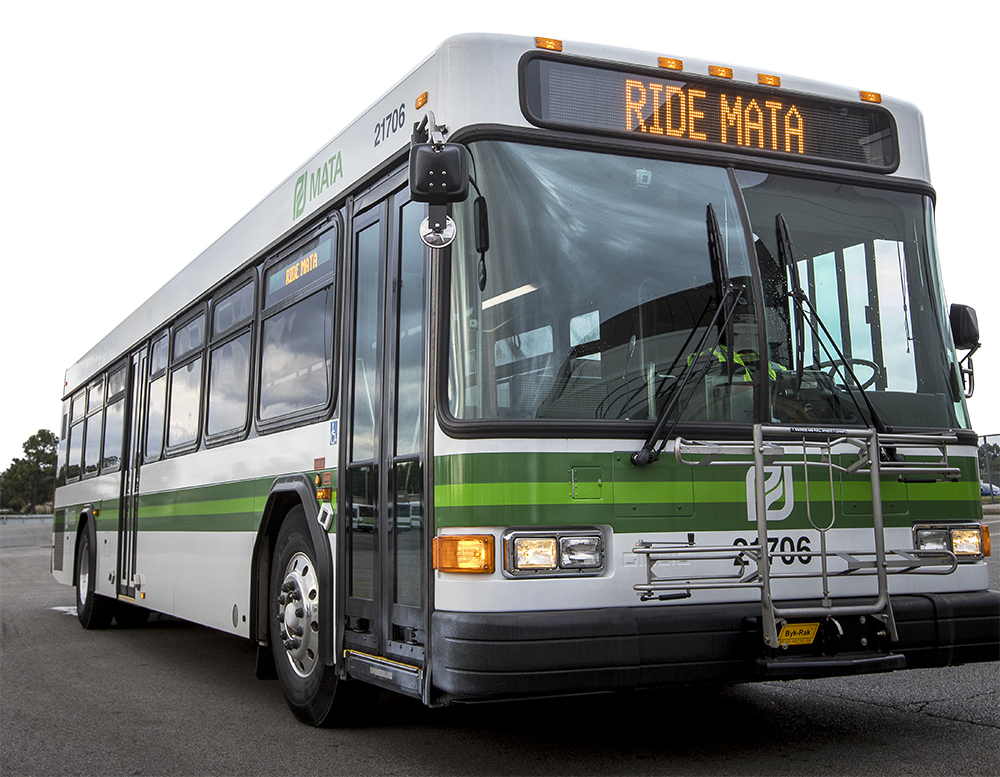The Memphis Area Transit Authority has requested $30,670,000 from the Memphis City Council for Fiscal Year 2025 (FY25.) This meeting comes weeks after it was revealed that MATA had a $60 million deficit.
MATA is projecting $65,219,738 in revenue for FY25, with federal grants and contributions from the city and county government contributing major portions. The agency said the city is the primary provider of operating funds.
Despite a budget gap, the agency said it is committed to increasing revenue and “refining [its] process of spending.”
“We recognize that there is a gap,” said MATA interim CEO Baccara Mauldin who, with other agency officials, faced the council Tuesday afternoon for the budget hearing.
“As the leader of MATA, personally and professionally, I own what I’ve inherited,” Mauldin said. “I own the problems but I also own the engineering of the fix. I’m holding the steering wheel on what will drive Memphis and MATA to a better mobility.”
Prior to her presentation, Mauldin said transparency and fiscal responsibility are two of her core leadership values, and as a result, she retained the services of an “external CFO” on her second day in office. Hamish Davidson of J.S. Held LLC joined Mauldin during the presentation.
Mauldin said the proposed budget for FY25 is $84,211,321, with its largest expense being wages and fringe benefits. She added that due to the nature of the work, the agency has to be more competitive with compensation packages. The CEO also emphasized MATA’s need for mechanics and operators.
In addition to needing competitive compensation packages, MATA says it needs more buses for fixed routes and MATAPlus services for citizens with disabilities. A large amount will go towards installation of the Memphis Innovation Corridor, which is the first bus rapid transit service in Memphis.
Mauldin reminded the council that these adjustments and changes are vital to having a “complete mobility system” in the city. She also said she would meet with council members and host town halls with constituents.
“It’s going to take some time, because we want to make sure that we reach every community through this process, that we get to talk to each one of you as well as our other stakeholders,” Mauldin said. “We really want to make sure that at the end of the day the reimagining of what transit looks like is a process and a plan we can all get behind, and know that we played a part in it.”
After the presentation, numerous council members posed questions regarding the expansion of MATA services to other communities such as the I-40 corridor, accountability measures, and increasing the electric vehicle fleet.
Prior to the dismissal of MATA’s team from the presentation, Councilman Chase Carlisle said, “The city of Memphis, the Memphis City Council is fully committed to supporting MATA. It is critical to core services and workforce development and opportunity. The city is committed to funding MATA at the level it’s always funded. I know the council is committed to that. I don’t think anybody has any intentions on reducing. The city of Memphis, at least the city council, is fully committed to funding at the level it’s always funded, and I look forward to the reimagining process,” Carlisle said.
Carlisle added that COVID changed the way the city looked at and operated on-demand services, and said the city has a “great opportunity” to reimagine it.
The council did not question MATA about the deficit which left some citizens “dissatisfied.” Cynthia Bailey, co-chair of the Memphis Bus Riders Union, said city council should not let MATA off the hook.
“The Memphis City Council must send a strong [message] to MATA that they are going to hold MATA accountable for past and future funding,” Sammie Hunter, co-chair of the Memphis Bus Riders Union added.
